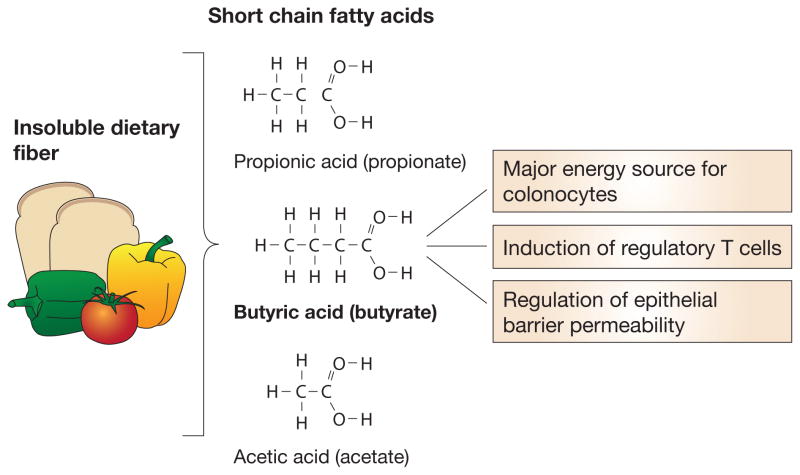Figure 1.
Commensal bacteria ferment insoluble dietary fiber to produce short chain fatty acids (SCFA), the most abundant of which are propionate, butyrate and acetate. Colonocytes metabolize butyrate as their primary energy source. The production of immunoregulatory metabolites is one way that commensal bacteria interact with host immune cells to promote non-responsiveness to innocuous luminal antigens. Recent work suggests that SCFA contribute to mucosal homeostasis through the induction of regulatory T cells and the regulation of epithelial barrier permeability.

